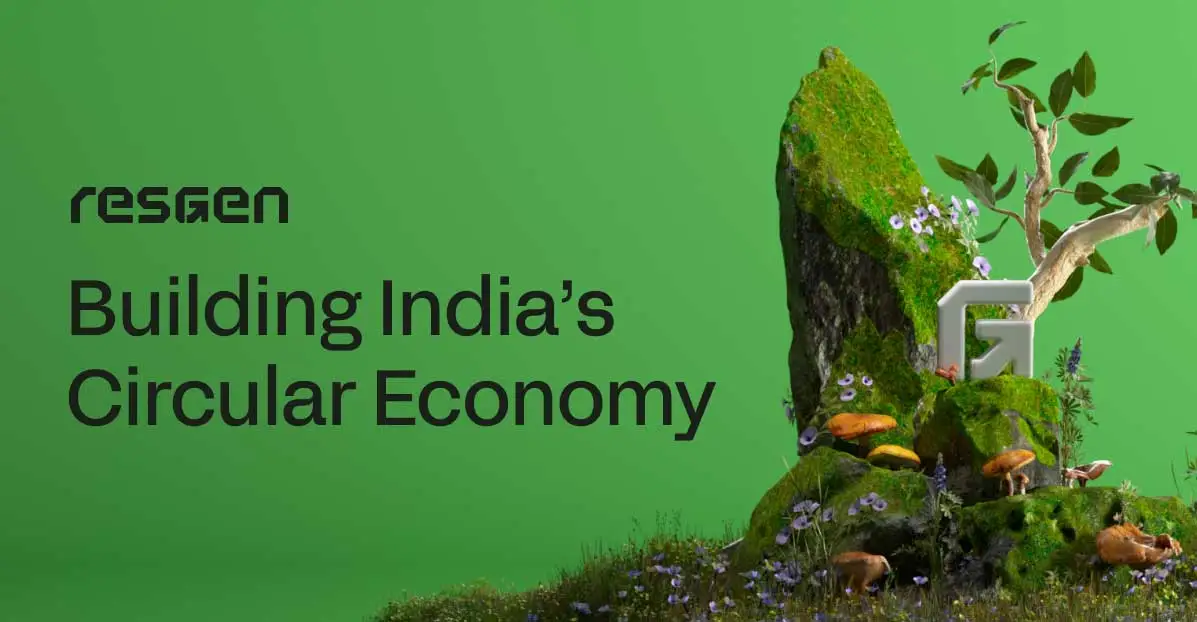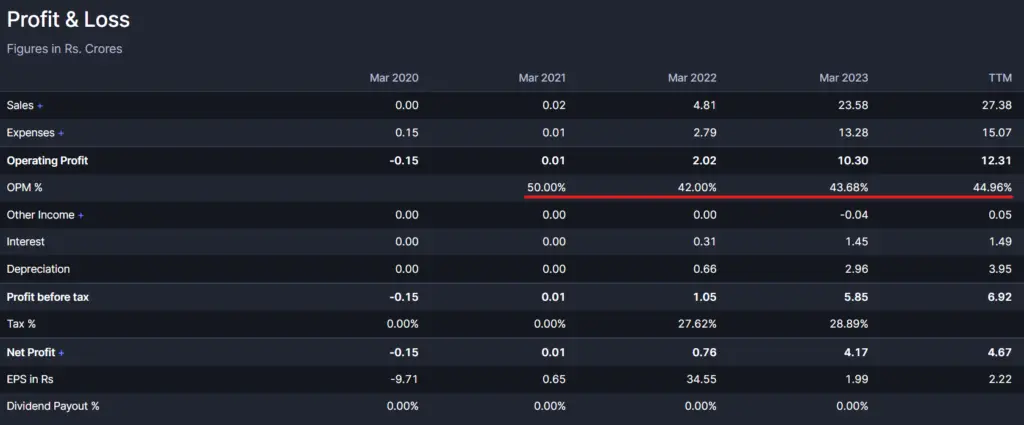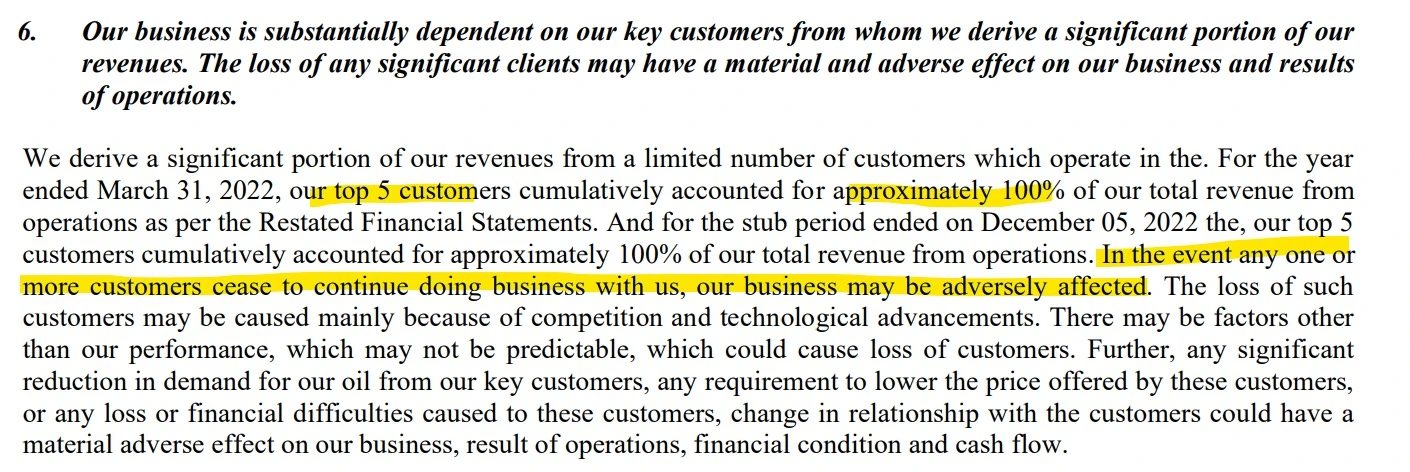
About the company
Resgen Ltd, established in 2018 is a 130 Cr Mcap company that originated from a vision to transform an environmentally beneficial project into a commercially viable venture. Addressing the pressing issue of plastic usage and the lack of a robust disposable system, the founders recognized an opportunity to utilize plastic waste by converting it into an alternative fuel source. Through an innovative approach, Resgen addresses environmental concerns as well as generates essential by-products. The primary by-products include combustible liquid and gaseous fuel, offering a sustainable substitute for diesel or furnace oils. This initiative directly contributes to reducing the demand for and impact of traditional combustible fuel resources.
About the management
Mr. Karan Atul Bora serves as the MD and CEO of the company. Holding a Bachelor’s degree in Civil and Environmental Engineering from Cardiff University and an MBA from IIM Kozhikode, he brings a strong educational background to his leadership role. In addition to his responsibilities at Resgen, Mr. Bora serves as an Executive Director at Markolines Pavement Technologies Ltd. He has recently taken on the role of Non-Executive Director at Transteel Seating Technologies Ltd.
Core Business
The company specializes in the primary business of producing Pyrolysis oil (PlasEco), serving as a sustainable alternative to traditional diesel or furnace oil. The manufacturing process involves utilizing various types of plastic, including waste and scrap materials. During this Pyrolysis Oil production, the company also generates valuable by-products such as Carbon (a substitute for Coal) and Gas (an alternative to LPG). Resgen also has an app called ClearCarbon that serves as a platform that connects consumers, companies, and recyclers.
ResGen has established a Chemical Recycling Plant in Vikramgad, Palghar, Maharashtra. This strategic location was chosen due to its proximity to key Municipal Corporations, including Mumbai, Thane, Kalyan, and Dombivali to enhance logistical efficiency.
Manufacturing Capacity
- Pyrolysis Oil – 5000 Ltr/ Day
- Carbon Black – 50 Kg/ Day
Raw Materials used
- Thermoplastics
- Polypropylene
- Acrylic
- PVC
Market Size & Opportunity
The Waste Management Industry in India is estimated to be USD 32.81 bn in 2024. It is projected to grow at a CAGR of 2.25% to reach USD 36.68 billion by 2029. India ranks among the top 10 countries globally in municipal solid waste (MSW) generation. According to a report by the Energy and Resources Institute (TERI), India generates over 62 million tons (MT) of waste annually. However, only 43 MT of the total waste generated is collected, with 12 MT being treated before disposal, leaving the remaining 31 MT discarded in waste yards.
The Indian Central Pollution Control Board (CPCB) predicts that annual waste generation in India will escalate to 165 MT by 2030. Simultaneously, the generation of hazardous, plastic, e-waste, and biomedical waste is expected to increase proportionately. Notably, plastic consumption in India has risen significantly in the past five years, resulting in the production of 3.4 million tonnes of plastic waste annually, of which only 30 percent is recycled.

The Pyrolysis oil Industry is valued at USD 320 mn and is expected to grow at a CAGR of 4% to reach USD 460 mn by 2031. The global pyrolysis oil market is significantly driven by factors such as increasing demand for energy-efficient and green fuel alternatives, rising environmental concerns, etc. The Asia Pacific market is expected to be the fastest-growing Pyrolysis Oil market.

Pyrolysis Process
In the present era, an alarming 95% of plastic waste is dispersed in the environment, emphasizing the urgent need for effective recycling solutions. Chemical recycling emerges as a crucial method to address the challenges posed by these plastic wastes, involving a meticulous process.
Pyrolysis, essentially the thermal decomposition of matter at high temperatures in the absence of oxygen, plays an important role in plastic recycling. In this process, plastic waste undergoes initial shredding, breaking it into smaller pieces. Subsequently, these pieces are introduced into an oxygen-free reactor, reaching temperatures of approximately 500°C, and then cooled. This high-temperature treatment disintegrates plastic at a molecular level through heat, resulting in three primary components: Pyrolysis Oil (yield ~ 50% – 90%), Gas (yield ~ 5% – 45%), and Carbon Black (yield ~ 5 – 10%).
The Pyrolysis oil produced holds substantial fuel value, typically ranging from 50% to 70% of petroleum-based fuels. This oil can be effectively utilized in industrial burners and engines, serving as an excellent alternative to traditional diesel and petrochemicals derived from fossil fuels.
Notable players who use the Pyrolysis method: Uflex Ltd, Antony Waste Handling Cell Ltd, APChemi, Oriental Aromatics, etc.
Financials

It is operating at a margin in the range of 40% – 50%.
Since the company has recently commenced operations, there is limited information about its financials.
Growth Triggers
- Rising focus on renewable energy sources and/or alternative fuel is a key factor driving the demand for Pyrolysis oil during the next decade.
- India imports 85% of its crude oil requirement. The potential of utilizing Pyrolysis oil as an alternative fuel for diesel engines presents a significant opportunity to diminish the country’s dependence on crude oil to a certain extent.
- Resgen employs a patented catalytic process designed to enhance the efficiency, safety, and scalability of the Pyrolysis process. The company secured a patent for its manufacturing process of Pyrolysis oil from plastic waste and scrap in 2021. The use of proprietary processes can contribute to the company’s competitive advantage.

Risks
- Inadequate policies for waste collection, disposal, and recycling, along with inefficient infrastructure, pose significant challenges in waste management across India. This prevailing issue could impact the operational efficiency and effectiveness of the process adopted by the company.
- Mr. Karan, being the founder of the company, also holds Director-level positions in two other companies mentioned above. At this nascent stage of operations, a founder’s full involvement is crucial for the company’s growth. The potential lack of complete engagement from Mr. Karan could be perceived as a concern, as a hands-on approach is often vital in navigating the challenges and ensuring the success of a company in its early stages. This aspect may raise questions about the prioritization of responsibilities and time allocation.
- Resgen’s 100% of revenue comes from 5 customers which is highly concentrated. This may affect the business adversely in case of any mishap.

Why PrudentParrot finds this company interesting?
- Despite being in the early stages of operations, the company is strategically positioned, catering to two industries: Waste Management and Renewable/Alternative Fuel.
- The relatively recent adoption of the circular economy concept in India is rapidly gaining prominence. The Indian waste management industry holds substantial potential, given that only 30% of the 75% recyclable waste is currently being recycled.
- The Government of India has set its sights on a comprehensive strategy to attain carbon neutrality by 2070. Among all the avenues being explored, alternative fuels stand out as a critical dimension to curtail India’s carbon footprint. Resgen stands to benefit from any favourable policies in this segment.
- Pyrolysis oil manufacturing segment is an unorganized sector with no prominent players in the industry. It will be interesting to watch how Resgen stands out from the masses and positions itself in the market.
- The company has been awarded a subsidy of 11.11 Cr for 10 years (1.11 Cr per year) by the Govt of Maharashtra under the Package Scheme of Incentives (PSI) – 2019.
See you next time.
Until then… Stay Prudent!
Disclaimer: This article is provided for informational purposes only and should not be considered as an investment advice
Also Read:
Funds raised primarily for land purchase and capacity utilization is also high approx 75% as per RHP. Further growth without capacity expansion is not possible IMO.
Sir, in recent h1fy25, cost of raw material went up 96% sales !
In h1fy24 that was 35% and in h2fy24 was 21% top line. No comment from Mx. Your view please.
Recent Announcement 19/12/24 > “Resgen has entered into a
Business Agreement with BNZ Green Technologies Private Limited (“BNZ Green”).”
Will it really benefit a lot to Resgen?, Is any other listed player in this segment?
KIndly provide your view regarding this development.
EPR credit trading operates similarly to carbon trading. Since Resgen specializes in waste management and recycling, it is likely to generate a surplus of EPR credits, which can be sold in the market as an additional revenue stream. Furthermore, as stricter government regulations and corporate ESG commitments increase demand for EPR credits, their market value is expected to rise, potentially boosting Resgen’s profitability.
Peer companies in the waste management and recycling space include Felix Industries, Namo Ewaste Management, Antony Waste Handling, and others.